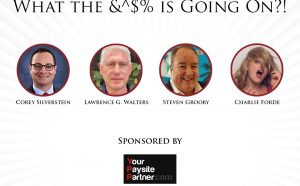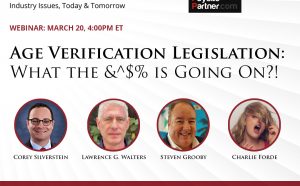One of the most shocking aspects of the murders of Tia Sharp and April Jones is the fact that it takes two child homicides for politicians and commentators to unite in calling for more stringent policing of online pornography.
Stuart Hazell and Mark Bridger had both downloaded copious images of sexual depravity involving children, and both men viewed this material before committing murder. I will leave criminologists to discuss what creates such killers, but there can be no doubt that child pornography fuelled their warped desire: just ask the experts at the NSPCC.
So why are such gut-wrenching images so readily available? Neither Hazell nor Bridger were computer-savvy geniuses, adept at tracking down hard-to-access material.
They were ill-educated, middle-aged men using popular search engines to stoke up their darkest delusions. Mark Bridger used Google and Microsoft’s Bing to track down disturbing images of naked or abused children, including the search: “France: British schoolgirl raped and murdered”. Hazell trawled the internet for sites involving “incest” and underage girls.
It didn’t take either of them long to locate material that gratified their urges. Nor is that fact surprising. It’s hard to track down definitive figures about the internet’s porn traffic, but the technology website ExtremeTech reported last year that 30 per cent of all web traffic involves pornography.
A more conservative estimate comes from Ogi Ogas on the Forbes website, who said his analysis of the million most popular websites in the world suggested that the true figure was closer to 13 per cent. Some of the most worrying statistics can be found in an online report on world pornography revenues for 2006: 82 per cent of searchers looking for “teen porn” were male and 46 per cent of those were aged over 35.
What is certain is that a huge number of people are looking for explicit sexual content and those searches represent a vast amount of revenue.
Which brings us neatly to the main internet service providers’ snarl of rage at government initiatives to devise a scheme that would block adult material as a default setting. Those who want to watch explicit material would have to opt out of the content blocker. Nothing too onerous.
This is hardly the nanny state banning all pornography. Rather, this is the woefully belated attempt of a liberal democracy to protect children from distressing adult material. Yet the Internet Services Providers’ Association (ISPA), which represents giants such as Google, Yahoo and Facebook, opposes the filter.
Google’s head of UK public policy, Sarah Hunter, regurgitated ISPA policy when she said last year that any such legislation, or imposition of filters, would “de-skill” parents and give them “a false sense of security”, as controls would be easy to bypass. Is Hunter really suggesting that it would be bracing and educational for parents to deal with the perils threatening their children alone, without any steer or intervention from the state?
In that case, let’s do away with age restrictions on buying cigarettes and alcohol. Aren’t we “de-skilling” parents if we say the manager of an off-licence bears legal responsibility for not flogging whisky to 10-year-olds?
Let us consider the possibility of internet service providers having the same responsibility to safeguard children that we impose on purveyors of tobacco and booze.
If criminals access illegal pornography using providers’ websites, shouldn’t the companies be prosecuted and fined? Shouldn’t executives’ heads roll? Shouldn’t the web giants explain why they prioritise revenue from porn over social responsibility?
And why do many of these web giants evade UK tax, make billions, yet declare themselves incapable of finding resources to try to contain illegal porn? If dullards like Bridger can find this heinous material, it can’t be beyond Google and the other internet giants’ wit to monitor it.
Such talk is heresy to the anti-censorship brigade, who bang on about how hard it is to differentiate between legitimate and illicit porn. What bilge. I ran an erotic magazine for eight years and am a stalwart defender of adult liberties, but I never found it hard to draw the line.
Broadly speaking, any sexually explicit material involving children, rape, extreme violence (as opposed to the stylised pain of S&M) and animals is indefensible. I would happily volunteer to give guidance to any search engine that finds itself incapable of making such judgments.
But then, the rationale of the service providers was never about where you draw the line, so much as the bottom line. Sarah Hunter has also said that Google “doesn’t go out of its way to make money from pornography”.
Spin that sentiment around and you’ll discern that Google and others don’t make much effort not to make cash from porn, either. Why should they, unless the Government grows teeth?







Oh, what utter bullshit this is. So, because two child abusers claim to have accessed their kiddie porn on Google as a means of justifying their illegal acts of abuse, every legal and consenting adult must suffer with having to register on a public “porn blacklist” just to access legal and non coercive speech and expression?? Does Ms. Pelling understand the concept of “do no harm to those who do no harm”?? Or, is she so caught up in sexual McCarthyism (albeit, the more “liberal” enlightened kind that tolerates “stylized” avant garde sexual expression in order to seperate their brand… Read more »